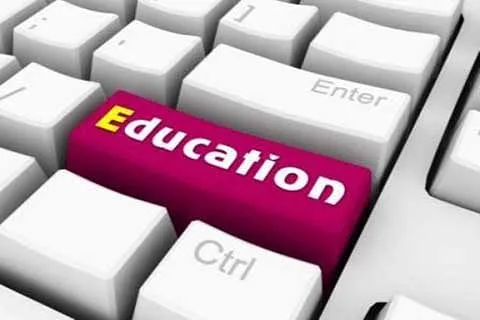Educationists all around the world have been arguing for reforms in the educational sectors across different levels, but the reality is that we have not seen substantial changes in our education systems over a period of time. One possible reason could be our aversion to change. I believe the current education system must go, leaving the space for more vibrant and robust system of education.
We have a learning crisis across different levels of education, more so in School Education. Looking at the different educational surveys, we could infer that after spending ten years in school many students are not able to write their names, which is not less than a tragedy.
There are real achievement gaps and we are not able to help our children to learn skills and competencies, which are essential for working in, and for society. Rather than seeing the systemic inequalities in our education system, we straight away blame our student community for their failure to learn and unlearn things. Traditional way(s) of looking into the progress of education is to see the achievement levels of students, but is it not important also to see the opportunities our students are getting, and what about those disadvantageous group of students that is not able to get the bare minimum facility for learning. Isn’t it important at this juncture, when there is a huge push for moving to online education, we give some pause and think about those people who don’t have a luxury of having a smart phone, or internet connectivity? It is a fact that rather than including all these people into mainstream of education, we are excluding them from the system and pushing them to margins.
What can be done, and how it can be done. In educational system we have many stakeholders, but we need to realize the fact that the key stakeholder is the student. As John Dewey in one of his classic texts, “The School and Society” argues that in our education system, “the center of gravity is outside the child. It is in the teacher, the textbook anywhere, everywhere you please, except in the immediate instincts and activities of the child himself,” which is an irony. The bottom line is we need to bring back the focus on children in a new scheme of things, which are emerging currently.
Academic freedom is another area, our administrators should investigate in order to reinvent education in this part of the world. Academia at all levels need to have fair amount of freedom to research and teach as well as freedom to communicate their research findings to the larger audiences. That will not only make these institutions highly attractive, it will also help these institutions to scale up their prestige, not only nationally but internationally too. This is probably one of the many reasons that the world’s most prestigious universities like Oxford, Cambridge and Harvard have attracted the finest brains world over. Because these people know that these are the places where ideas not only matter, but they are valued and acknowledged as well.
Creative and critical thinking is an area our educational institutions must aspire to develop among our student community, apart from skills and competencies. Creative and critical thinkers are the people who guide the society at crucial junctures in the history and are torch bearers in every domain of our lives. We have an abundance of people who believe on whatever comes their way, but our society is in dire need of the people who can contest and confront the commonly accepted myths, and bust them especially in these post truth times. Here I’m reminded of a quote by Helen Keller, “a well-educated mind will always have more questions than answers.” We need to teach our kids to question everything in life.
Examination being one part of the educational landscape has taken over the entire education system, and the fact of the matter is that the sole objective of our education has become passing these exams with good grades; nothing else. The entire machinery from top to bottom works to smoothly conduct these examinations. We need to ask ourselves, is this the only aim of education, or we have other larger objectives to achieve.
All these mentioned things, and many more, can only be re-imagined, when we have leadership not only political, but also at different levels, especially in the education sector. The current crises have, apart from many other things, shown us how different leaders have responded to the same crises differently and achieved great degree of success. Mediocre leaders cannot run the world-class institutions. Educational institutions, from school to university, need transformational leadership, if we dream of an education that helps us to mitigate the problems of our society and the world at large. We need leaders who will not only celebrate victories but at the same time own failures, that will probably make these people accountable and transparent.
In conclusion I must say that there is an interconnectivity of ideas; one reform is linked to another. So, if we are able to work only on one idea or an issue, that won’t do. It is time we work holistically to get rid of mediocrity in our education system. We believe the Covid crises have provided us a golden opportunity to relook at education and see whatever best could be done to reform and re-imagine our education system.
Manzoor Ahmad Parey is Assistant Professor, Higher Education Department, Government of Jammu and Kashmir. Views are personal.






